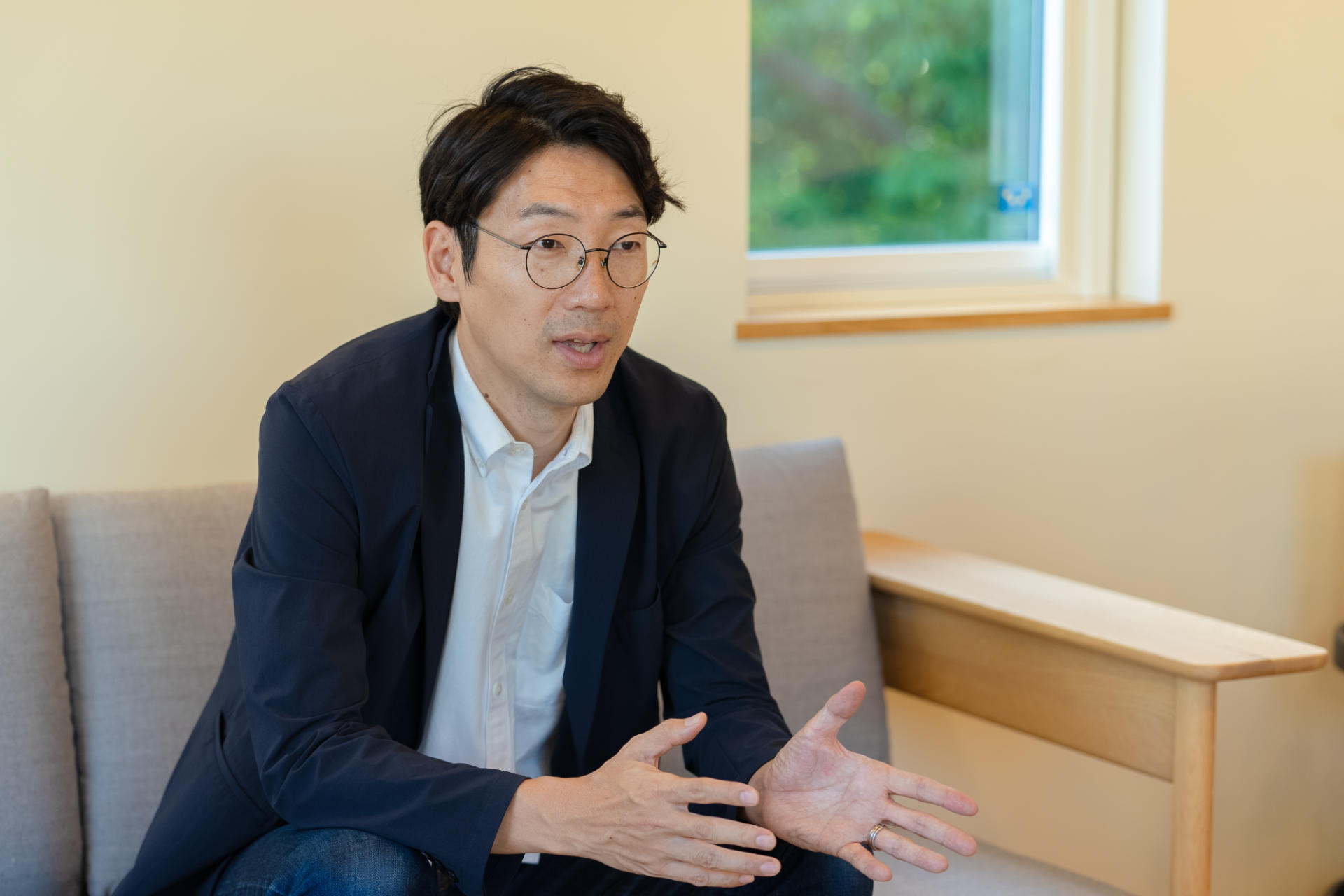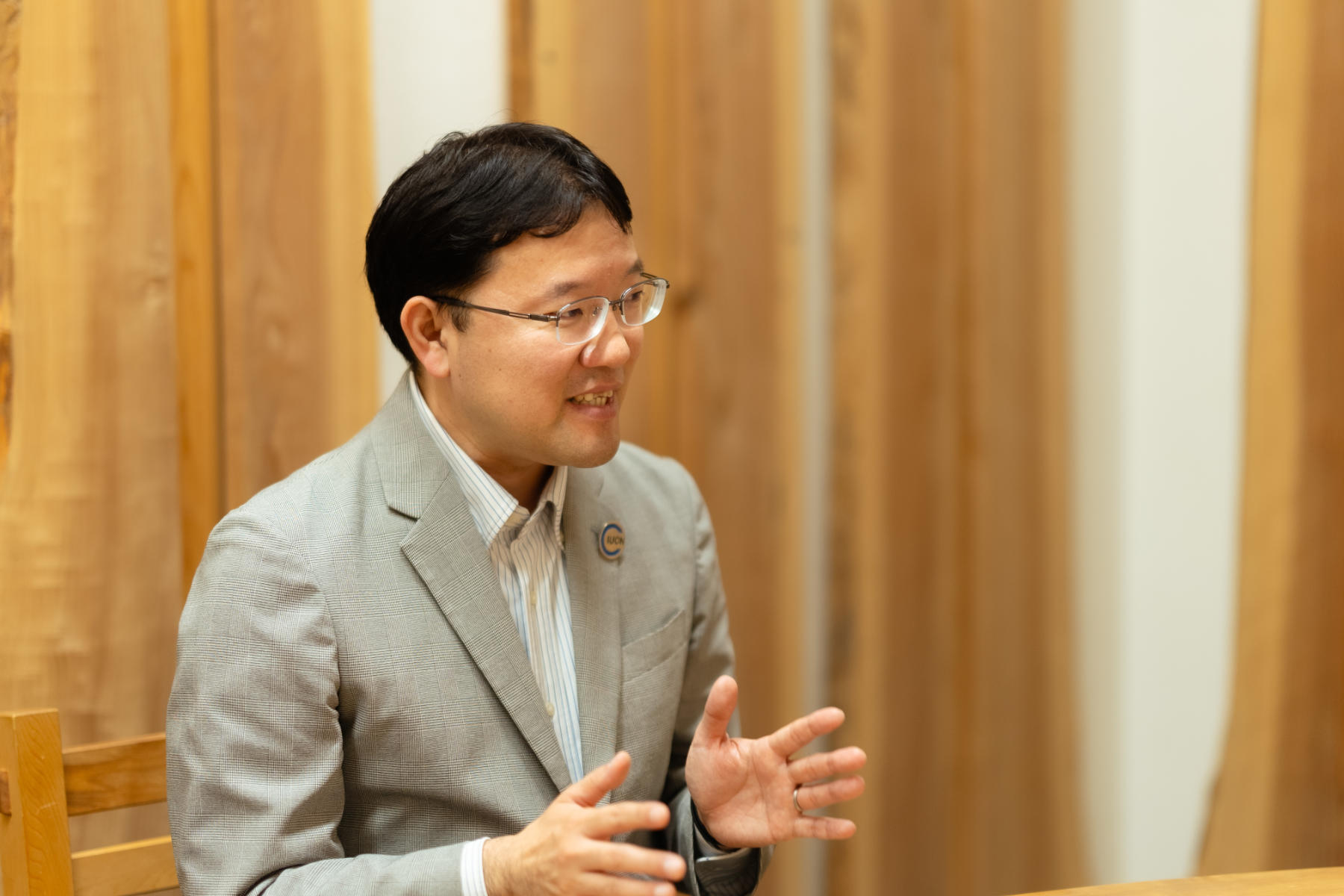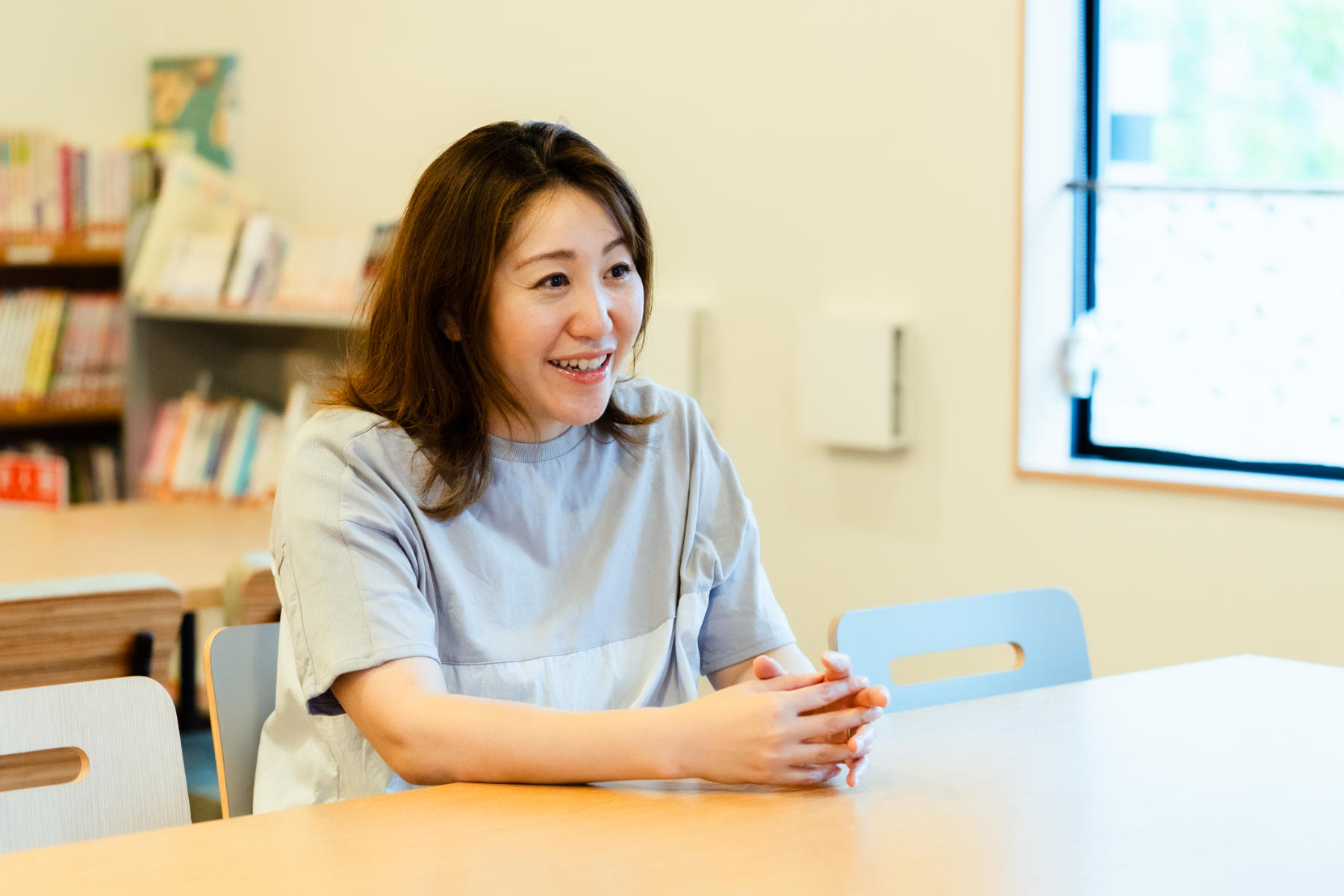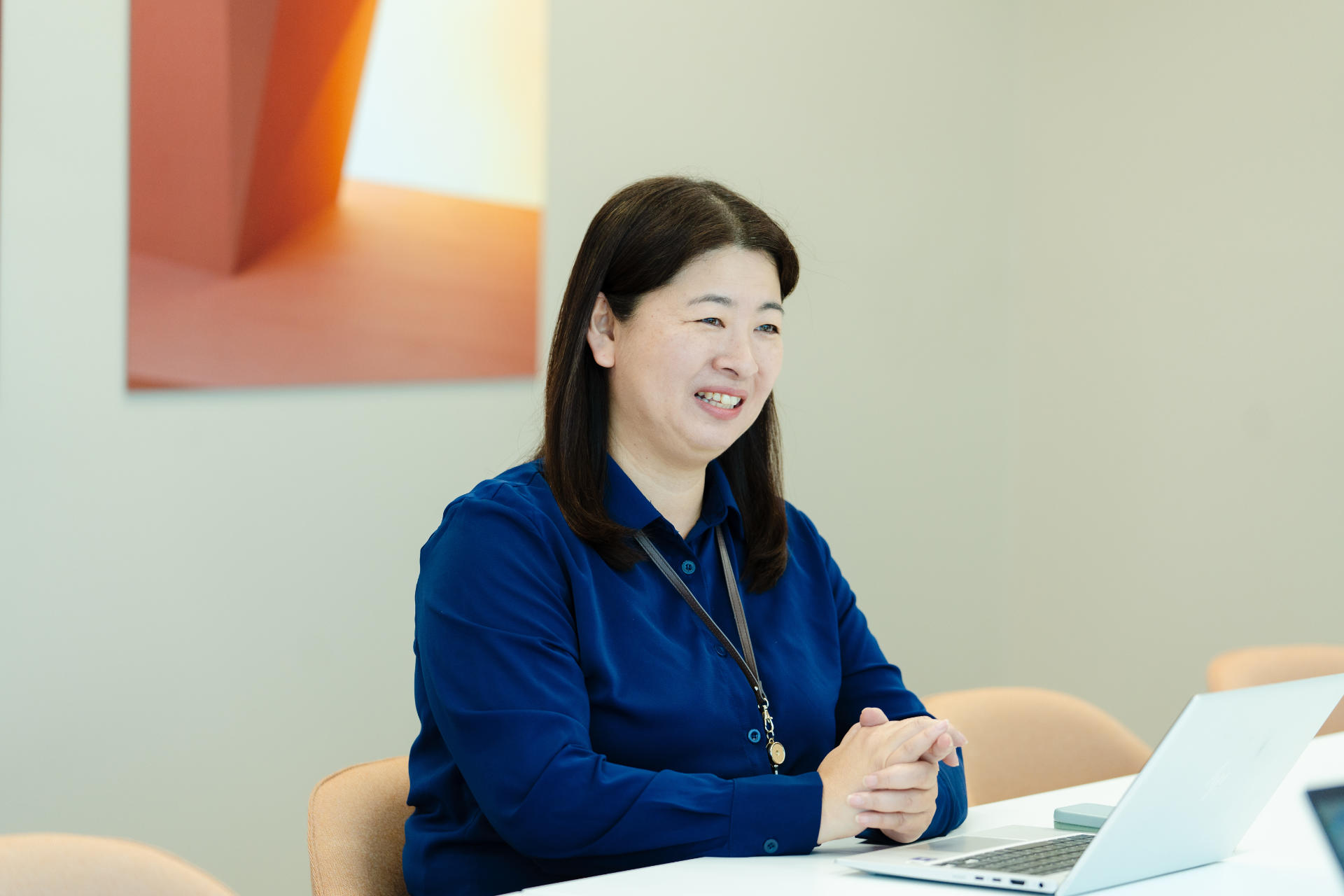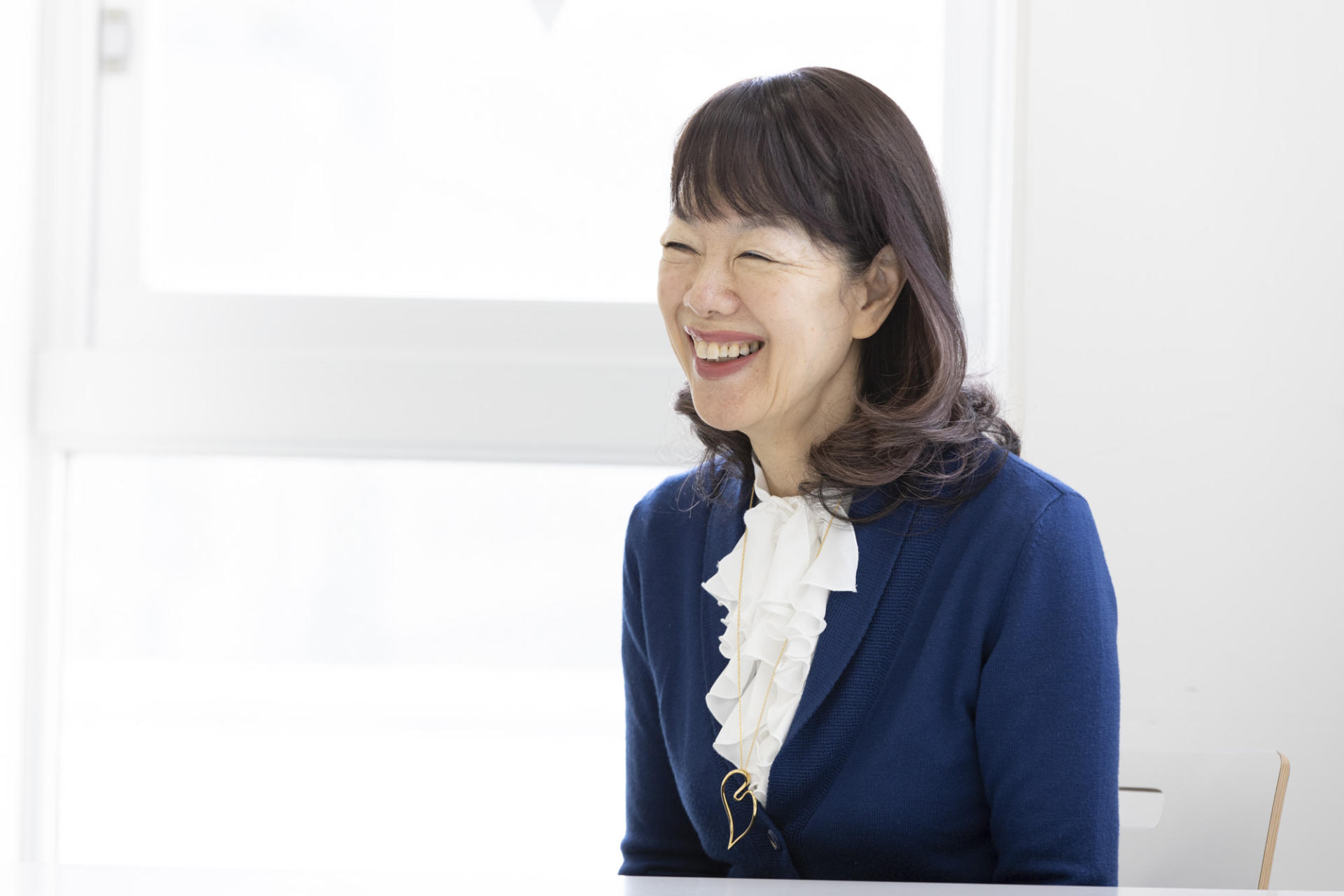CASE 01
Specified Nonprofit Corporation Earth Tree
(November 2016 – July 2018)
“Hitoshizuku and we are good friends both based in Yokohama and share the same values. They took the time to proceed carefully with our case, which also led to our future project.”
Specified Nonprofit Corporation Earth Tree (hereinafter “Earth Tree”) is an NGO for international cooperation based in the Kan’nai district, Yokohama, where we, Hitoshizuku co., ltd. (hereinafter “Hitoshizuku”) also has our office. It was summer 2016 when they, who had provided international support in many Asian countries with the local NGO partners, contacted us. We looked over their case with Mr. Tomonori Shimoda from Earth Tree’s administrative office.
“It started when I heard that Hiroshi had started his company in Yokohama, and talked to him to see if we could do something together.”

Mr. Hironori Shimoda, Earth Tree
Chiba, Hitoshizuku (hereinafter, Chiba) :
I heard that you and Kokubo, our president, knew each other. Would you tell us the story about how you came to offer us the project?
Mr. Shimoda, Earth Tree (hereinafter, Mr. Shimoda):
I met Hiroshi at JVC (Specified Nonprofit Corporation, Japan International Volunteer Center) which I also belong to, as well as our NGO. He was involved in a policy recommendation project as a student intern. At that time, he’d already struggled with the fact that NGO and NPO’s work isn’t recognized in society, and it seemed that he truly wanted people to know more about those important, yet unrecognized, works.
I remember wondering what he is going to do after getting a job at a big company. I hadn’t met with him for a while and had known nothing about he had been in up to. In 2016, when I heard that he was going to start his company for supporting public relations of NGOs and NPOs, I thought that he had kept his vision for 10 years, the vision that he had when he was a college student, and finally it was his time to realize it. I also heard that it was going to be in Kan’nai, Yokohama, which was close to Earth Tree’s office, and I excitedly wondered if “maybe we can do something together.” And then around that fall, the opportunity to consulted with him about our public relations organically came about, and that’s where the project started.
“I’d had a thought that making publicity tools could be a start of thinking about the meaning of working as an organization”
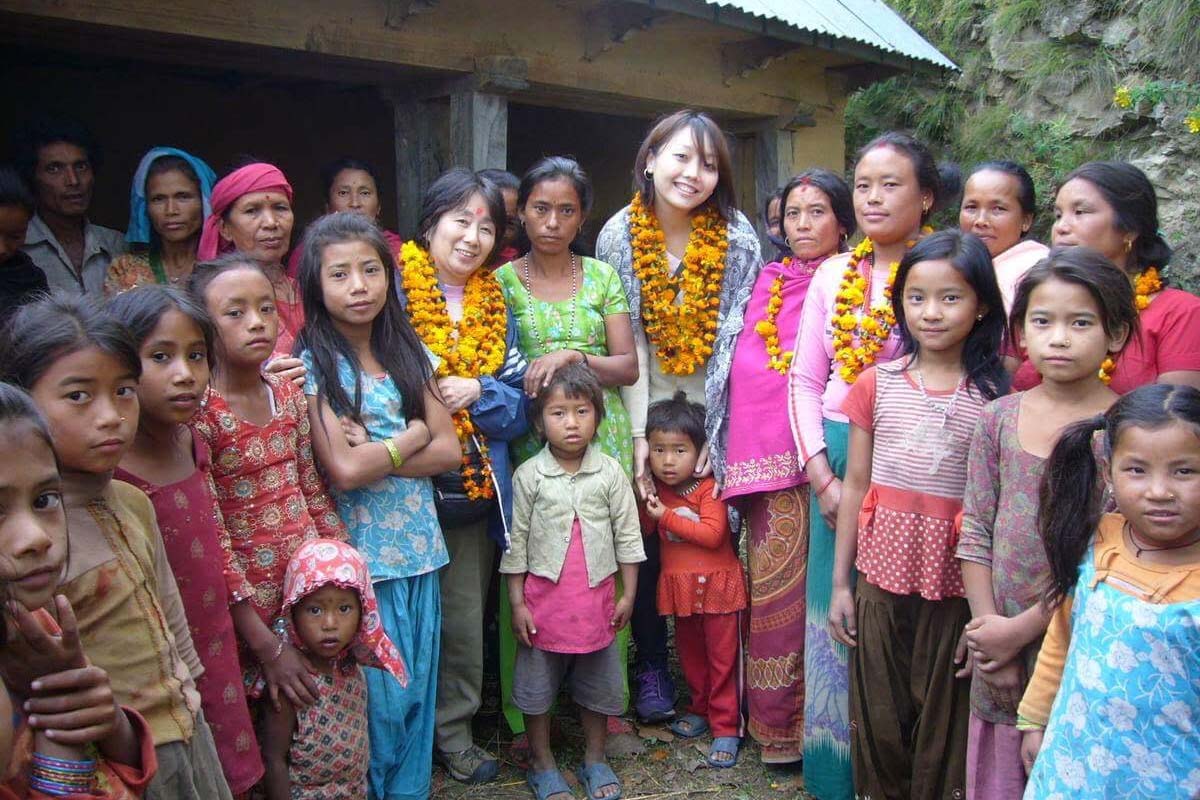
A study tour in Nepal, one of the countries Earth Tree supports.
Chiba:
The first work you offered us was to support making specific PR tools by revising pamphlets and the website. But from the beginning, your goal wasn’t the completion of the tool, rather it was something bigger, wasn’t it?
Mr. Shimoda:
Yes, my idea was that pamphlets and website were the last landing point. It’s the 27th anniversary of Earth Tree this year, 2018, and I think we can say we have a quite a long history compared to other NGOs. We’ve been continuously providing international support mainly to Laos, Nepal and Cambodia, and built firm relationships between local partner NGOs or local people. Also, I think we’ve contributed to having opportunities in Japan, mainly in Kanagawa Pref, to report about the countries we support.
It was in 2015 that I started working at Earth Tree. It was around in the middle of the mid-term policy planning for coming three years. The members were getting older and also the volunteer team that move each project wanted younger generations, so, in the mid-term plan, we decided to speak out more in the next three years from 2016 in order to meet new supporters.
Around that time, I knew there was a grant from the Japan International Cooperation System called the “NGO Support Project” and I was thinking that, by using the revision of the pamphlets and website for leverage, I wanted to create a chance to think about what kind of message should we give as an organization to recruit new supporters.
What we took time the most was for listening. Each member spoke about their action in their own words.
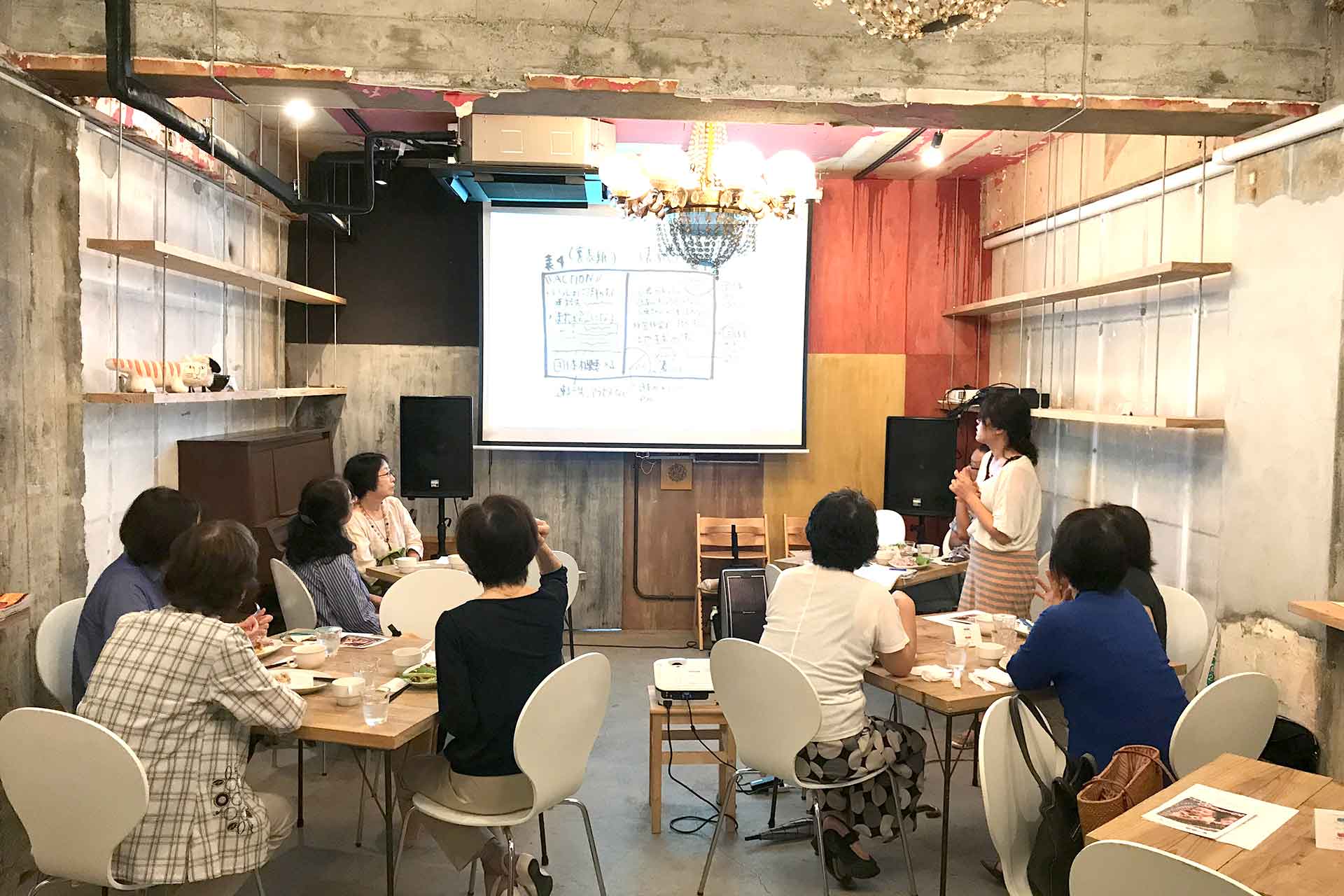
We had a lunch meeting after the share group to tell them about the result of it and check the draft of the pamphlet together and exchange opinions. It was an important process that led to the output.
Chiba:
Actually, when I saw your website and pamphlet for the first time, I had an impression like “I can see it’s an international cooperation organization, but what’s unique about them?”. There are many international cooperation NGOs. Of course each of them has done wonderful jobs, but I thought we need to show attractive points that only Earth Tree has in order to get new members.
There should be their own charms, but they can’t be seen in images or isn’t described in words. We, Hitoshizuku suggested to “conduct a careful interview with people in the volunteer team” in light of such circumstances and Mr. Shimoda’s hope that he wants to make tools, and through that, create an opportunity to think what they can do as an organization with his people.
Mr. Shimoda:
When I heard they’d like to hear from people in our volunteer team as much as possible, I felt very grateful, and also as a result, it turned out to be great to put a good amount of work on that.
Chiba:
Earth Tree has three teams for international support, one team for each country, and for domestic project, they have a delivery lecture team to enhance international understandings, a craft team to sell craft works of the countries they support at events, and a newsletter team which covers whole publicity, so we had a focus group with each team. We asked people in the volunteer team to talk about what they do now, the history of the team and what they think is challenging or rewarding, and wrote down key words on a large paper.
As the interview went, there were moments that they found words as they speak. For example, one of them said, “Maybe selling craft works is not for funding, but for connecting the country we support and people around us in Japan”. We used this on the pamphlet as it is.
We could listen to the words of people who actually engage in projects and see their personalities, through which we could build a foundation of editing and making PR tools.
Making final decisions becomes harder when the organization is flat. We could put it into a shape because of the foundation we’d had through the hearing.
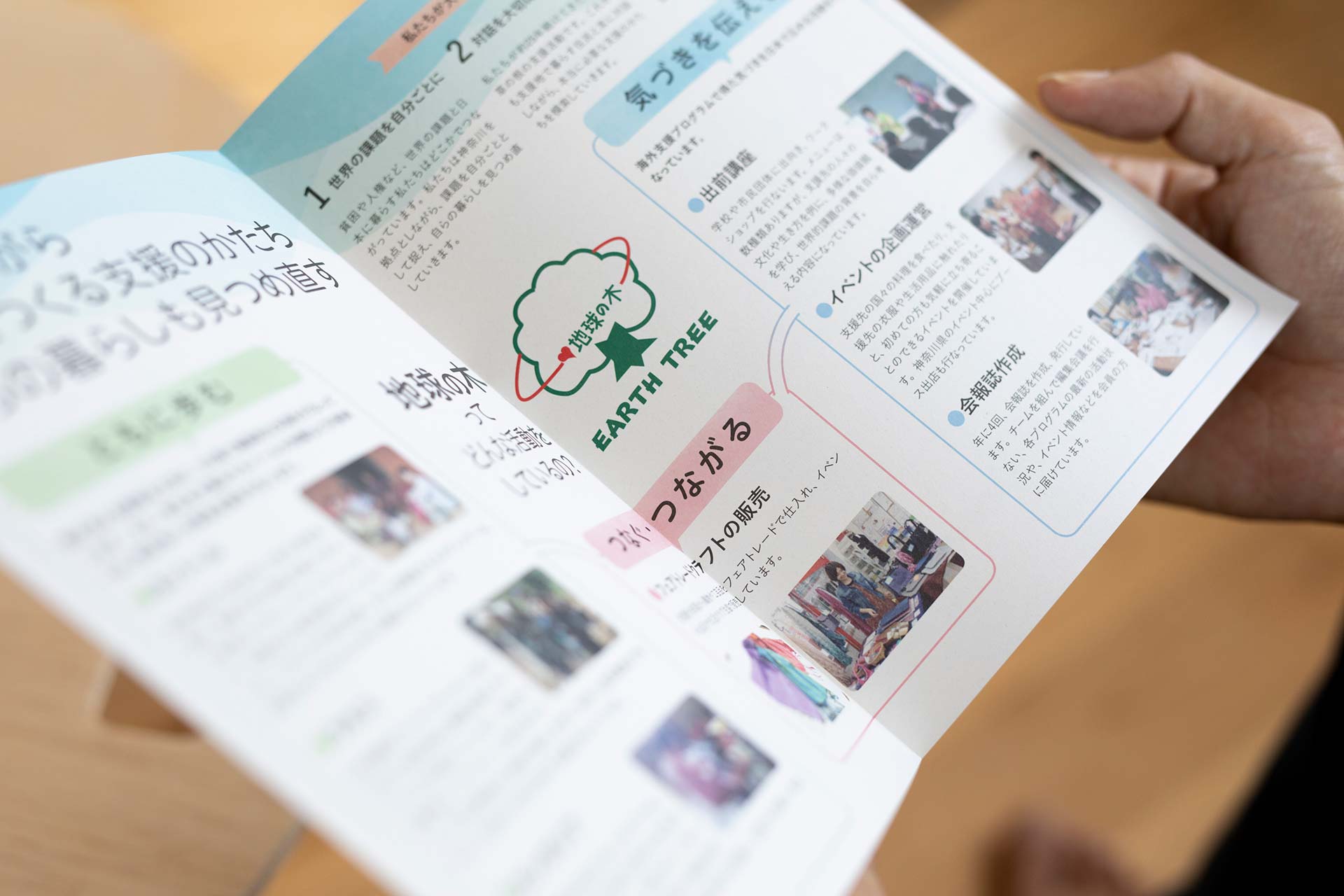
The pamphlet was made through about 8 months of making process including focus groups.
Chiba:
Do you have any afterthoughts? Anything that didn’t meet your expectations, or that kind of thing? It’ll lead to next thing, so I’d like you give honest feedback.
Mr. Shimoda:
We think you did a great job with limited money and time. In fact, we feel sorry that we took so long to make every decision even though it was us who asked for the project. It took about three months longer than our original schedule for making the pamphlet, didn’t it?
Chiba:
As you are a group of people who are passionate about what you do, I’d assumed the decision making to output would be difficult. We appreciate you, as an organizer adjusting the schedule and things while understanding our situations as well.
And although it took time, you spared a good amount of time for focus groups, which we feel resulted in smooth communication during the revision process.
Even when there was an opinion from your side that required some changes, we could discuss it showing the reasons why there was any parts we thought were better to leave “as is”, also at another time, your ideas and reasoning were very convincing to us. We were able to work thoroughly and make a good pamphlet.
“We’re seeing confidence on what we do through words from volunteer team members”
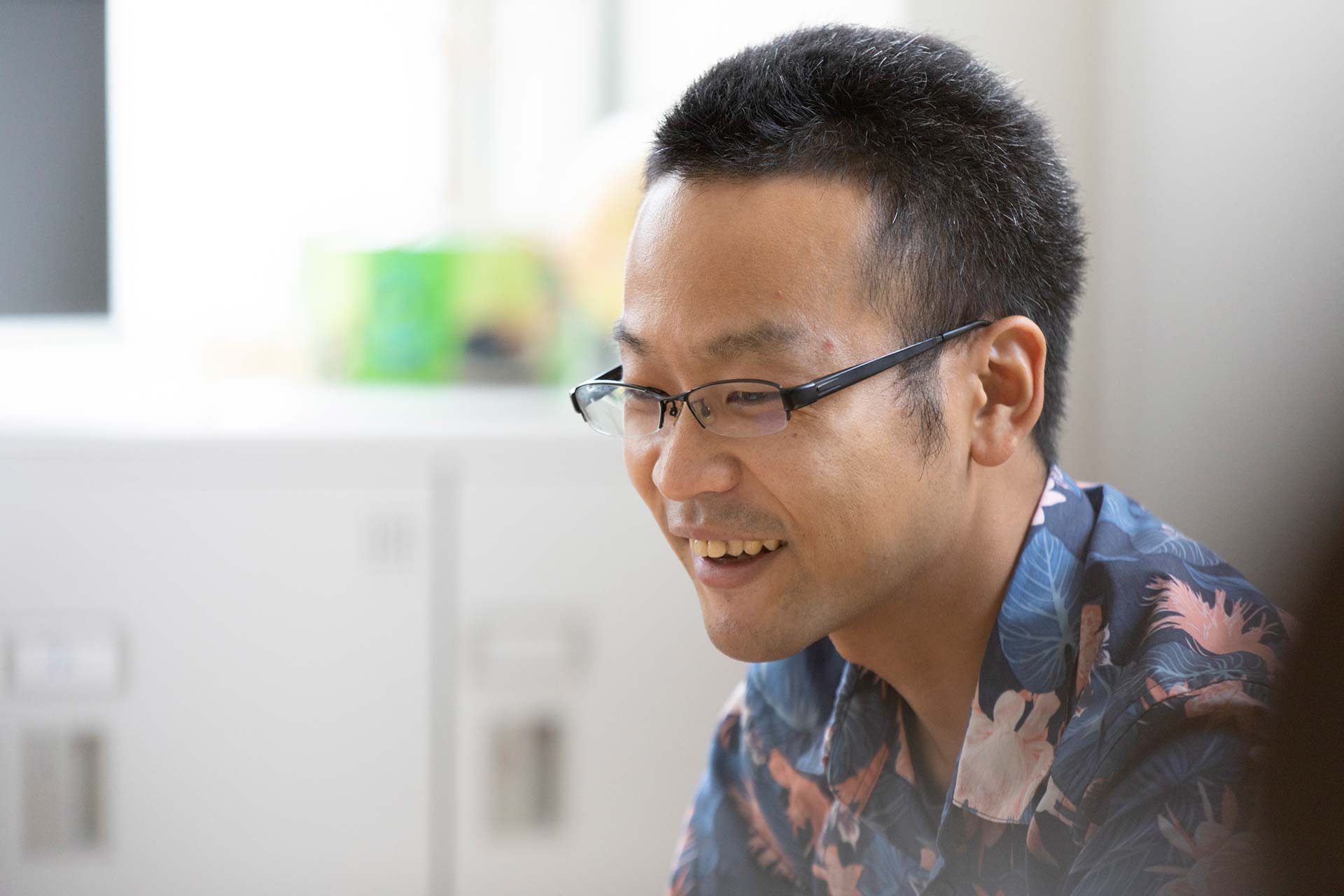
Chiba:
Were there any changes brought to your organization by renewing pamphlets and rebuilding website with us?
Mr. Shimoda:
“The important thing is, how we can reflect on what we noticed through the international support in Japan, and in Kanagawa Prefecture” “National and international, both make us what we are” – These are what I heard from members of the volunteer team after this fall. Although they might have had those things in their mind, it hadn’t been said in words. I feel that I’m hearing more of these after we finished making the pamphlet. By taking time for listening and creating, we could reassure what we think is important and what our organization is aiming for through our projects. I see members objectively as one of the organizers, and I feel that they verbalize what they do with their own words.
Also, we hadn’t had that many opportunities to work with people outside the organization, so the experience has had a positive affect on us. We’ve been getting the sense of how to handle the limited amount of time and narrow things down according to the goal, not pushing everything in. We used to put various kinds of information into one tool, but now, more often I hear suggestions that we should think about targets and goals, and make separate tools.
Chiba:
Has there been an effect on getting new supporters, which was one of your goals in the beginning?
Mr. Shimoda:
We can’t say we got many new people immediately, but it was a big realization for volunteer members that “we can’t get supporters only with a pamphlet”. We made a good pamphlet with clear explanation as a gateway, then what we can do next to make people be members – we’ve started to think about it and it’s coming together. For example, we’ve been talking about having many small gatherings in Kanagawa pref. to talk about our activities.
It is very important to make a good connection between what we do and sharing it. By modifying our pamphlet and remodeling our website, we could take the next step, so by utilizing those tools, we’d like to bring it to make a good cycle.
Photograph : Chisato Hikita
Editing : Takako Chiba
RECENT WORKS
| Name | Hitoshizuku Inc. |
| Address | 33 Nihonodori Naka-ku Yokohama Kanagawa 231-0021 JAPAN |
| Branch | Hamacho Odawara Kanagawa 250-0004 JAPAN |
| Phone | 81 045 900 8611 |
| info@hitoshizuku.co.jp |
| President | Hiroshi Kokubo |
| Established | March 2016 |
| Capital | 3,000,000yen |
| Business | Advertising & Public Relations Agency Planning & Produciton of Social Good Projects |
| Lawyer | Junna Tei / Yokohama First Law Office |
| Tax Advisor | Satoru Motokoide / Uniques Money Advisory |
| Labor and Social Security Attorney Office Work Innovation | |

